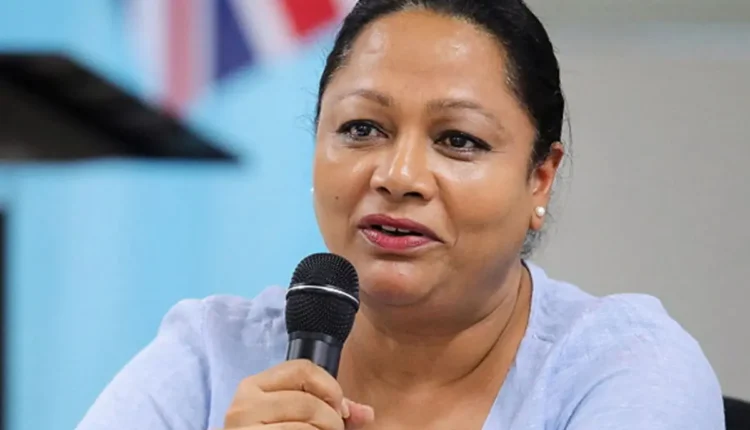In the picturesque islands of Fiji, where vibrant culture meets stunning landscapes, one woman has been on a mission to transform education and preserve the rich heritage of the Girmit legacy. Meet Premila Kumar, a consummate advocate for consumer rights, a seasoned politician, and an unwavering champion of Fijian education.
Early Life and Education of Premila Kumar
Born in Suva, Kumar’s educational journey took her from Suva Methodist Primary School to Dudley Intermediate and Mahatma Gandhi Memorial High School. However, her pursuit of knowledge extended far beyond Fiji’s shores. She ventured to Sophia College for Women in India, where she earned her bachelor’s degree in science before embarking on a career in teaching.
Yet, her thirst for learning was unquenched, leading her to the University of the South Pacific for a Post Graduate Certificate in Education and later a Master of Science in trade and the environment in the Netherlands.
Kumar’s career path was as diverse as her educational background. She served as a government environmental advocate and held the role of an investment manager at the Fiji Islands Trade & Investment Bureau, demonstrating her commitment to both the environment and economic growth.
In 2006, she was entrusted with the helm of the Consumer Council of Fiji, where she launched impactful campaigns on drug prices, bank fees, and fuel costs, all in the name of protecting consumers. Her dedication was recognized when she was named the most influential woman of the year by the Fiji Times in 2010 and received the Executive Woman of the Year Award in 2015 from Women in Business.
A Transition to Politics
Kumar’s relentless pursuit of a better Fiji led her to politics. She joined the FijiFirst party and was elected in the 2018 Fijian general election. Her portfolio as Minister for Industry, Trade, Tourism, Local Government, and Housing reflected her commitment to improving various aspects of Fijian life. She staunchly opposed the restoration of elected local councils, a contentious issue in Fijian politics.
Throughout her political career, Kumar underwent cabinet reshuffles, demonstrating her adaptability and commitment to public service. In 2022, she was re-elected, but her tenure as a Cabinet Minister came to an end when the government transitioned to a coalition.
Education Challenges and the Girmit Legacy
Premila Kumar’s role as Minister for Education brought her face to face with the challenges of the education system. She raised concerns about primary school students becoming involved in illegal activities, including drug-related incidents and brawls.
She emphasized the need for collective action, involving parents and faith-based organizations, to address these issues and nurture better citizens.
Premila Kumar also recognized the significance of the 2013 constitution in establishing the true identity of all Fijians, regardless of race, religion, or ethnicity. She emphasized the importance of not forgetting the historical context, including the impact of the 1987 and 2000 coups on Girmit descendants.
Despite zero tolerance for corporal punishment, Kumar acknowledged ongoing complaints against teachers. She assured thorough investigations, emphasizing the importance of child protection and stating that corporal punishment is not a solution.
Preserving the Girmit Legacy
Premila Kumar’s commitment to preserving the Girmit legacy extended beyond politics and education. She highlighted the resilience and sacrifices of indentured laborers from 1879 to 1916, whose contributions played a vital role in Fiji’s economy, particularly in the sugar industry.
In a symbolic gesture, Premila Kumar handed over a boat and engine to the Bulou Dolele Memorial School, enhancing accessibility for students in maritime areas. She emphasized the government’s commitment to providing various forms of transport assistance to ensure students have access to education.
A Vision for a United Fiji
Kumar’s tenure as Minister of Education was marked by her dedication to a united and peaceful Fiji. Premila Kumar stressed that the 2013 constitution allowed every Fijian to be called a Fijian, regardless of background, and highlighted the importance of unity achieved through leadership and a commitment to education.
Also Read : Gary Bhojwani : From Allianz to CEO of CNO Financial Group

